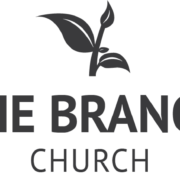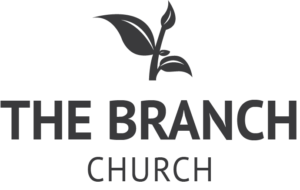Atonement: Scapegoat Mechanism (8.11.19)
Atonement: Penal Substitutionary Theory (8.4.19)
Atonement: Christus Victor
This is My Story: How Pain and Suffering Influences Our Lives (7.21.19)
This is My Story :: Brian :: Reimagining Faith (7.14.19)
This is My Story :: CCGR and The Branch (7.7.19)
This is My Story :: CREATE (6.30.19)
This is My Story :: Jason :: The Global Church (6.23.19)
This is My Story :: Heather :: Heartside (6.16.19)
As we continue our “Stories” series, Heather Karel shares with us about her work as a physician in Heartside. Heather gives us a beautiful example of missional living. Listen here as she tells stories of her work and how that has impacted other areas of her life.
This is My Story :: Sarah :: Ghana (6.9.19)
This week, Sarah Lundberg shared with us about her recent trip to Ghana. She shared stories of seeing God at work in Ghana and how that has impacted her life here.
This is My Story :: Dave & Trina :: Neighborhood (6.2.19)
“I am certain that God, who began the good work within you, will continue his work until it is finally finished on the day when Christ Jesus returns.” Philippians 1:6
Each week in this series we’ll hear the story of someone at the Branch and how God is at work in their life. Their stories will not only give us perspective on our own, but in turn help shape how we live. This week, we hear a part of Dave & Trina’s story and how God is at work in their neighborhood.
The Good and Beautiful Life (5.26.19)
The Good and Beautiful Life: Learning to Live Without Lust (5.19.19)
Lust is defined as objectification for the purpose of self-gratification. The cure for lust, according to Jesus, is love. Not just any love, but selfless love. Over and over, Jesus relentlessly turns our attention to our heart, when talking about our actions.
The Good and Beautiful Life: Learning to Live Without Judging Others (5.12.19)
Who do we judge others? It’s easy to say that we don’t judge people, but we all put others in a certain category. And when we do that instead of listening to someone and getting to know them, it is easy to judge them. But Jesus offers a better way forward.
The Good and Beautiful Life: Learning to Live Without Vainglory (4.28.19)
Easter Sunday (4.21.19)
Death and resurrection. It’s not just something that happened to Jesus, but we see this pattern in our lives as well. When we are willing to lay down our own self for the sake of others, new life comes.
The Good and Beautiful Life: Learning to Bless Those Who Curse Us (4.14.19)
The Good and Beautiful Life: Learning to Live Without Lying (4.7.19)
Questions for Discussion (chapter 6)
- James Bryan Smith gives an insightful list of lies we often tell:
- Yes, I have read that book (or seen that movie).
- Yes, let’s definitely get together soon.
- He’s in a meeting.
- She’s not home.
- No, that outfit doesn’t make you look fat.
- Add to this list by brainstorming lies we tell that seem harmless.
- Read the first 5 paragraphs from the section titled “How Living in the Kingdom Can Cure Lying” on pages 112-13. Note the ways the kingdom of God sets us free from lying. Discuss how your experiences of God’s kingdom have reduced lying in your life.
- Read Colossians 3:9-10. In this passage, Paul refers to the “new self,” which can be seen as indwell by Christ and as residing in God’s kingdom. The “old self,” which Paul invites us to take off, is isolated from God and God’s resources. As we put on the new self, lying is less necessary and less attractive because of who we are and where we are. What soul-training exercises (spiritual practices) have helped you to take off your “old self” and put on the “new self” that Paul speaks of?
The Good and Beautiful Life: Learning to Live Without Worry (3.31.19)
There’s no podcast for this day because there was no sermon! Instead, we engaged in 4 prayer stations designed to help us take steps toward trusting God instead of worrying. Chapter 10 of The Good and Beautiful Life is a great place to start. Resources are listed below if you would like to engage in these practices with us. Slowly read Matthew 6:25-33 and then move into one or more of these options.
Option 1: Pray the news. Grab a newspaper or scroll through a news feed. Stop when a story grabs your attention and causes you to worry, or that feels hopeless. Pray over that story, and begin to “trust that God can and will work in them.” (Smith p. 178)
Option 2: Reflect on God’s past, stead provision and care in our lives. Prompts for writing and reflection can be found here.
Option 3: Reflect on God’s provision and care in creation. Take a walk outside and pick up a leaf or acorn, or hold a flower. Reflect on the beauty of creation and of God’s good care of it all.
Option 4: Mindful breathing allows us to awaken our own spirit, acknowledge the gift of life that God has provided, and turn that breath of life into prayer; joining our spirit with God’s. A step-by-step guide to prayer using mindful breathing can be found here.
Questions for Discussion (chapter 10)
- God has instituted prayer as a means of caring for us. We are invited to turn our cares into prayers. And when we do, we put the matter into God’s hands. This does not take away our responsibility in dealing with our concerns, but it places the concerns in the larger context of the kingdom. In what ways do you see the kingdom of God at work in the areas you pray about?
- Review the section titled “Jesus’ Narrative: Things Not to Worry About” (pp. 175-178). Reflect on the various points from this section that you find either challenging or helpful.
- The author tells us that Matthew 6:33 “is the key to the entire Sermon on theMount” (p. 178). Go to section “One Day at a Time” (pp. 180-81), and highlight points that are especially helpful or challenging to you. Then prayerfully engage Matthew 6:33.


